The State of the Putin Narrative
Scott Horton's Analysis Side By Side With Biden's State of the Union Address
Following President Joe Biden's recent State of the Union address came many pointed critiques, some of which I have included linked at the bottom.
Some temptation was there to do a “Johnny Come Lately” take that borrowed heavily on the others. Instead, a sharp, eye-opening speech about the fractured relationship between post-Soviet Russia and the West was brought to my attention.
Anti-war activist Scott Horton was invited to speak before the Libertarian Party of Utah and Mises Caucus in Salt Lake City. Several portions of the speech stood out as relentlessly hammered hard truths that cast enormous doubt upon the ear-tickling and blame-shifting tone of the State of the Union address.
This eventually struck me as a contrast worth stressing.
The Menace of Democracy Rolls Into Ukraine
Immediately following the formalities of the occasion, President Biden addressed Russia's invasion of Ukraine, construing Vladimir Putin's motives as an effort “to shake the foundations of the free world” so he could “make it bend to his menacing ways.”
Six days ago, Russia’s Vladimir Putin sought to shake the foundations of the free world thinking he could make it bend to his menacing ways. But he badly miscalculated.
He thought he could roll into Ukraine and the world would roll over. Instead he met a wall of strength he never imagined.
He met the Ukrainian people.
What if the reality tells a different story? What if we need to actually understand what motivated Vladimir Putin to attack before painting him as an irrational menace and a threat to democracy?
What Cult of Putin?
Scott Horton began his speech by taking the sting out of the jingoistic ferver encouraged by the good and evil binary. What if that binary framing is a false dichotomy intended to cloud your faculties from objectively assessing the situation?
Whenever someone dares to differ with the common government and TV narrative about Russia and their role in the world, that person is usually instantly condemned as spouting Russian talking points or being paid by Putin. This is probably especially the case this week, as Russia is waging aggressive invasion against their neighbor Ukraine as we speak.
That’s still nonsense. Where would a Texan attain these talking points? Are they true?
Back in the days of the communist Soviet Union, there were some Americans, many fewer than supposed and no true dangers, but still there were some Americans who shared an ideological affinity and loyalty to communism and the Soviet government. But there just is nothing whatsoever comparable to that today in the United States.
A cult of Putin? Where? Certainly not an either major party, nor within liberalism, progressivism, socialism, conservatism, populism, libertarianism, or any other broad-based political movement in America.
The Side of Peace and Security
It's noteworthy that Oksana Markarova, Ukraine's Ambassador to the United States, was in attendance. As was the displays of Ukrainian flags. Dozens of members of Congress were recently photographed before a half-American, half-Ukrainian flag. The pet project could hardly be more official.
President Biden expanded upon the framing laid out in the previous passage.
Throughout our history we’ve learned this lesson when dictators do not pay a price for their aggression they cause more chaos. They keep moving. And the costs and the threats to America and the world keep rising.
That’s why the NATO Alliance was created to secure peace and stability in Europe after World War II. The United States is a member along with 29 other nations...
As I have made crystal clear the United States and our Allies will defend every inch of territory of NATO countries with the full force of our collective power...
In the battle between democracy and autocracy, democracies are rising to the moment, and the world is clearly choosing the side of peace and security.
This raises a few curveball questions:
What actions are consistent with choosing peace and security?
Who gets to cause chaos in response to a provocation?
Scott Horton reminds us of a key commitment the United States made, along with many other Western leaders at the time. We should take the rhetoric of “peace and security” to heart as we consider this betrayal of honor.
On February 9th, 1990, President George H.W. Bush and his Secretary of State James Baker promised Soviet Premier Mikhail Gorbachev that if the US would withdraw their troops and allow German reunification under America's NATO military alliance, they would not expand it, as Baker put it, ‘one inch eastward’ beyond that.
West German Chancellor Helmut Kohl, French President Francois Mitterrand, British Prime Ministers Margaret Thatcher and later John Major, all made the same promise.
Of course, they've lied about it ever since, at various times, claiming this pledge either never happened at all, or doesn't count because it wasn't in writing.
But in 2019, the records were posted at George Washington University's National Security Archive. You can read the writing yourself. An American researcher just last week found in the British National Archives - a formerly secret document - minutes of a meeting with the political directors of the foreign ministries of America, the UK, France and Germany on March 6, 1991, in which the German representative Juergen Hrobog says, ‘we made it clear in the 2+4 negotiations that we would not expand NATO beyond the Elbe. We can therefore not offer NATO membership to Poland and the others.’
As reported by the German paper Der Spiegel, US Representative Raymond Seitz said, ‘we have made it clear to the Soviet Union in the 2+4 talks and elsewhere that we will not take advantage of the withdrawal of Soviet troops from Eastern Europe.’
There you have it. A written record of the West’s commitment not to expand NATO eastward towards a post-Soviet Russia.
That American researcher is Josh Shifrinson, who worked with Der Spiegel's Klaus Wiegrefe to bring these findings to the public, flying in the face of the argument that there was no written deal, and therefore, the Western powers weren’t bound by it.
But in the test of time, that talk is cheap. Poland joined NATO in March of 1999, along with Hungary and the Czech Republic. By March of 2004, seven more nations joined NATO, including Latvia, Lithuania, and Estonia, which share a border with Russia. Ukraine is, with some foundation, referred to as a de facto NATO state.
I cover this further here and here.
Out of caution, I stress the difference between de facto and official in that “the full force of our collective power” is obligatory under Article 5 in the North Atlantic Treaty. A variety of sanctions have been imposed on Russia, and US troops are presently stationed in NATO countries.
NATO and Biden, Then and Now
As a leading member of the Senate Foreign Relations Committee during Bill Clinton's second term, Joe Biden enforced the effort towards eastward NATO expansion.
After the collapse of the Soviet Union, Mr. Biden successfully urged NATO to accept Poland, Hungary and the Czech Republic as member states in the late 1990s. The top Democrat on the Senate Foreign Relations Committee at the time, Mr. Biden said that turning the former Cold War adversaries into allies would mark the “beginning of another 50 years of peace” for Europe. He added that the move would right a “historical injustice” perpetrated by Stalin.
But over the course of two decades of war in Iraq and Afghanistan, experts said, Mr. Biden’s fervor for expanding NATO cooled considerably. In 2004, seven Eastern European countries joined the alliance, and in 2008, President George W. Bush pushed NATO to issue a declaration that Ukraine and Georgia would become members in the future despite reservations from U.S. intelligence agencies. However, the alliance has never offered either country a formal action plan to join, a necessary step for them to do so.
Biden's newfound reservations have done little to curtail Ukraine's own ambitions - and that within his own administration. Last June, Secretary of State Antony Blinken voiced support of Ukrainian membership to senators.
The “democratic” Ukraine - whose President shut down three TV stations run by an unfavorable “oligarch” media mogul and had him arrested for “treason” - was ranked 117th out of 180 countries in Transparency International's corruption index, lower than any nation in NATO.
In addition to Zelensky's ill-fated ambitions, Horton tackles NATO's own identity crisis. To remain relevant in the face of the “self-licking ice cream cone,” they needed a “team-building exercise” to fill the cushy seats.
A New York Times headline from the end of 2020 says it all: NATO Needs to Adapt Quickly to Stay Relevant for 2030, Report Urges. They do not even know to be embarrassed.
This is what they mean by ‘self-licking ice cream cone’ that the NATO alliance is not relevant. And why do we have it at all? How can their mission be sacred when they had to hold an emergency study to decide what it is?
The answer they came up with trying the North Atlantic Treaty Organization’s new reason for existing is China. Or maybe they just got lucky. And a new lease on this is how the Bush and Obama government's talked about the Afghanistan War as well. It was a ‘team-building exercise’ for The Atlantic Alliance. In other words, these policies exist because all the vested interest wants to stay without having to get a job. It is understandable, but unacceptable.
Ukrainian president Volodymyr Zelensky visited Washington in September 2021 and asked to begin negotiations toward Ukraine's admission to NATO this may have been the final straw before President Putin began to build up forces at basis adjacent to Ukraine last fall.
Putin proposed a treaty saying that Ukraine will not be brought into the alliance that the US promises not to station troops or offensive weapons to revive the Intermediate Nuclear Forces Treaty and for the US to withdraw its military footprint in NATO member nations in Eastern Europe, as the Bill Clinton administration had promised not to do when embarking on the expansion project in 1997.
Putin knows the US will not agree to these terms, but he knows the US will not seek to integrate Ukraine into NATO in the medium term at least.
With Ukraine in crisis, times remain uncertain. But it remains clear that a few self-congratulating soundbites are insufficient and ultimately misleading if we want to be informed about how it ended up that way.
External Resources:
Full text: Biden State of the Union 2022 transcript
Part of the Problem: A Libertarian's Take on the State of the Union
Brion McClanahan Show: Biden’s SOU Stunk
The Jeffersonian Tradition: Joe Mussolini's Terrible, No Good, Rotten, Very Bad SOTU
Timcast IRL: LIVE State Of The Union Drinking Game With Lauren Southern And Keean Bexte
New find of files from 1991 supports Russian accusation by Klaus Wiegrefe
How is NATO involved with the crisis in Ukraine? by Ashley Nash
NATO Won’t Let Ukraine Join Soon. Here’s Why. by Edward Wong and Lara Jakes
NATO Needs to Adapt Quickly to Stay Relevant for 2030, Report Urges by Steven Erlanger
US can’t absolve itself of responsibility for Putin’s Ukraine invasion by Andrew Bacevich
Follow Me on Social Media:
Also on Substack:

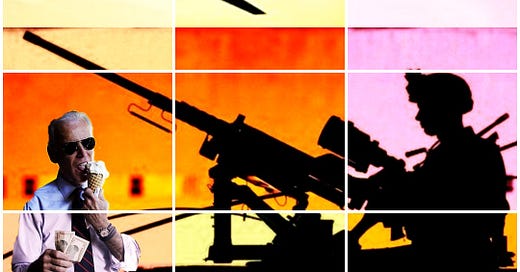


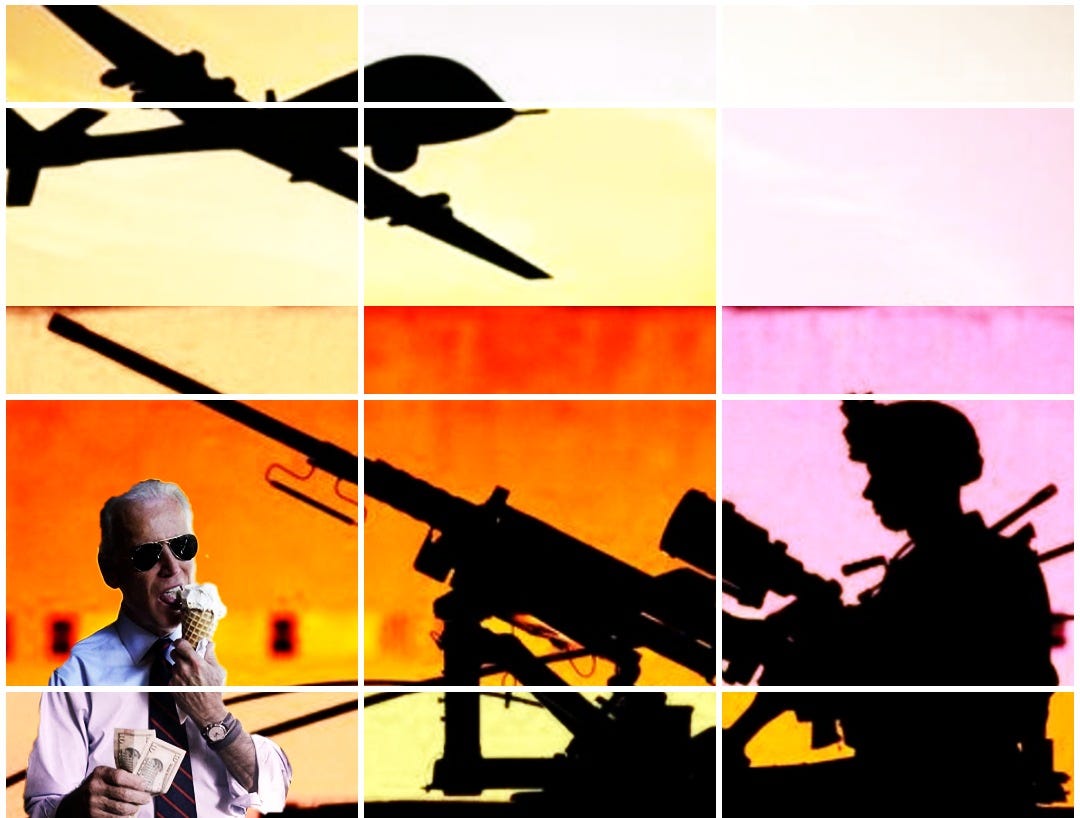
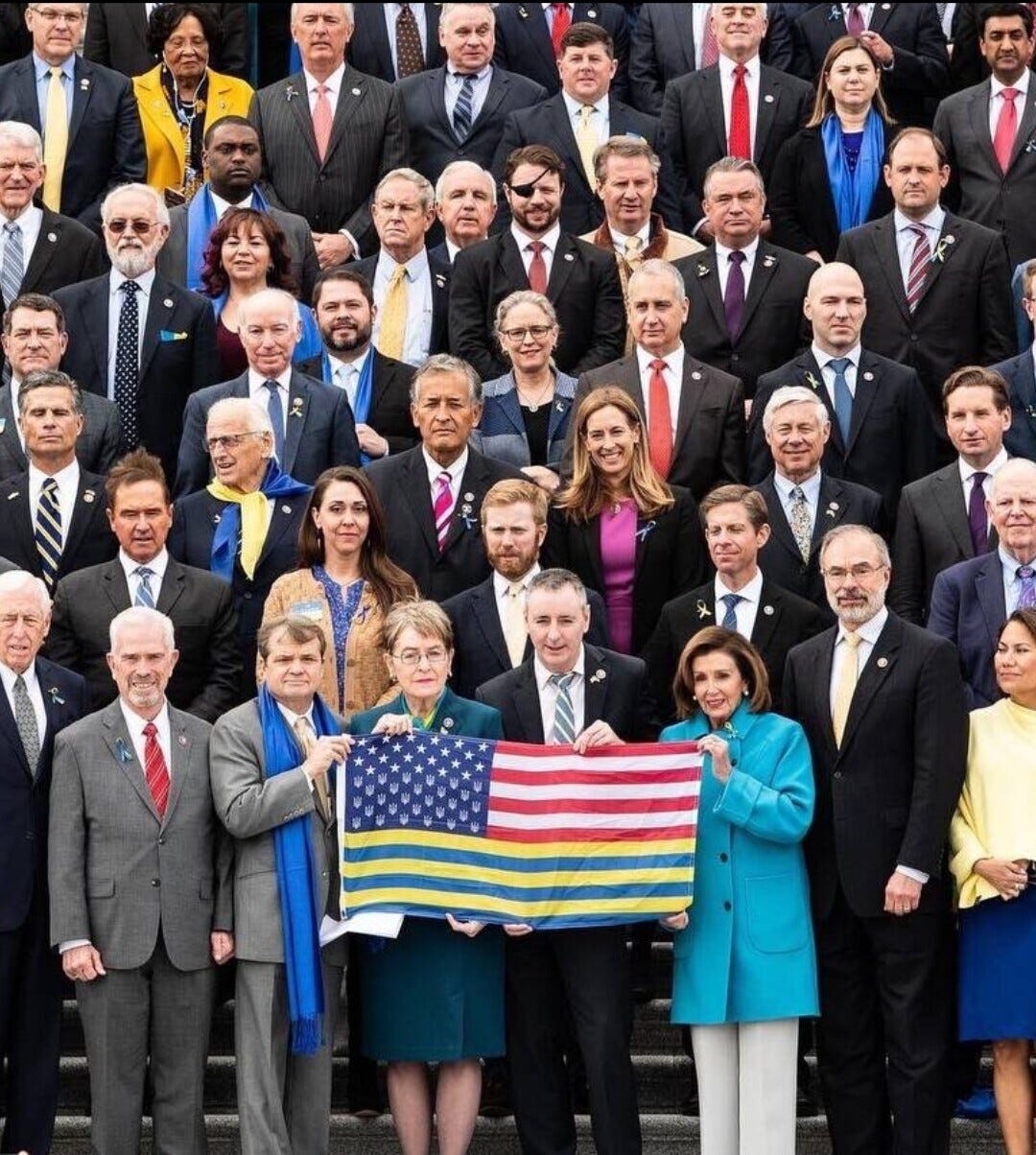
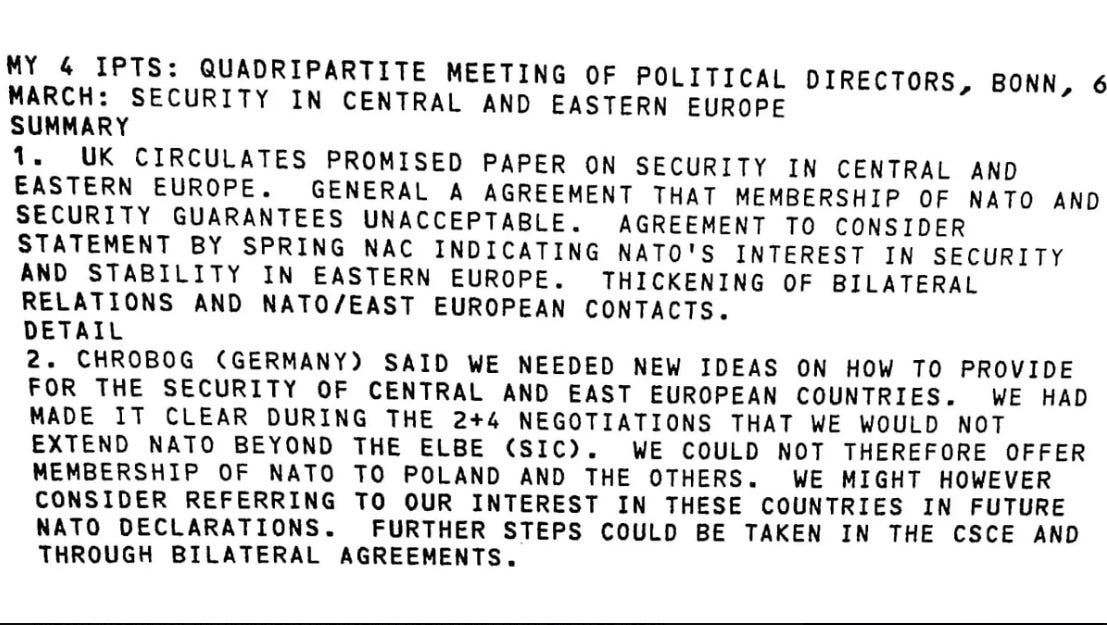
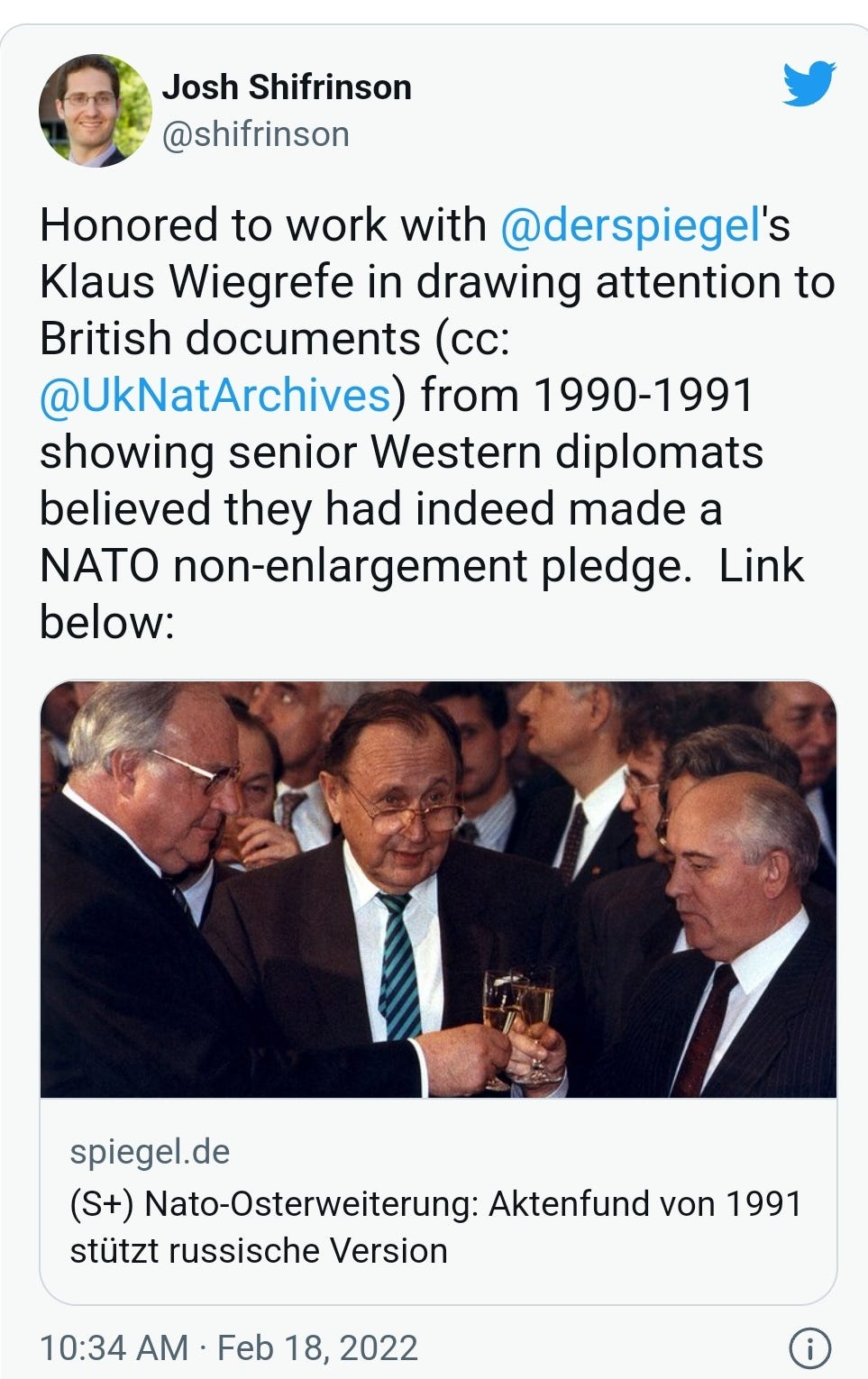

Special thanks to Scott Horton for Re-Tweeting this entry.